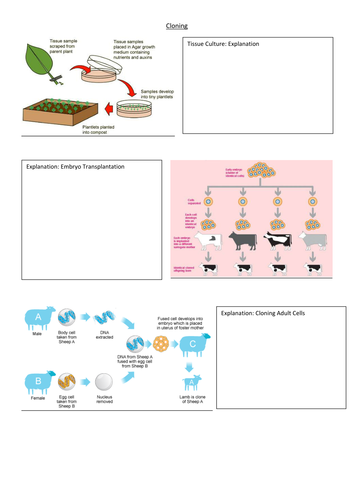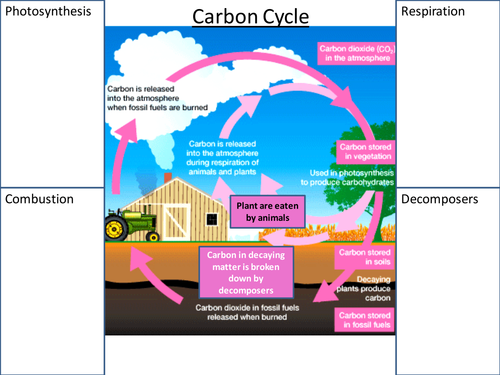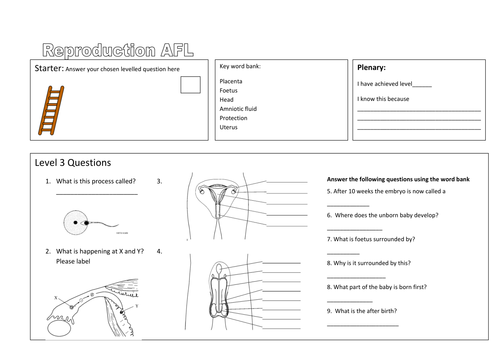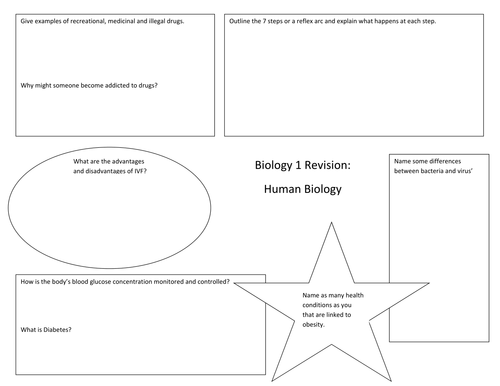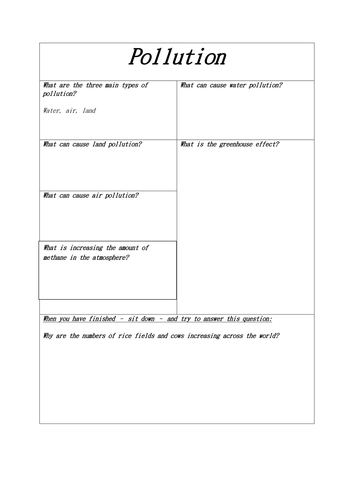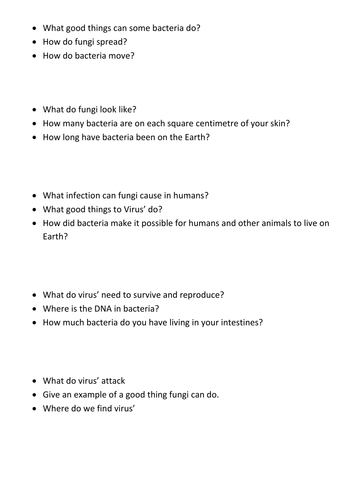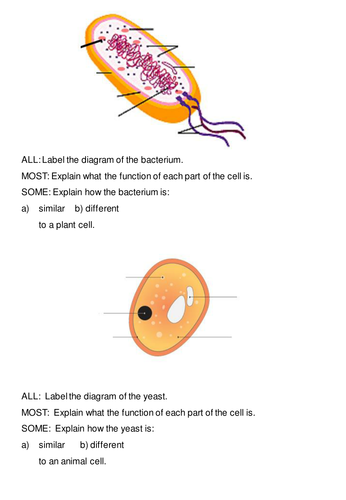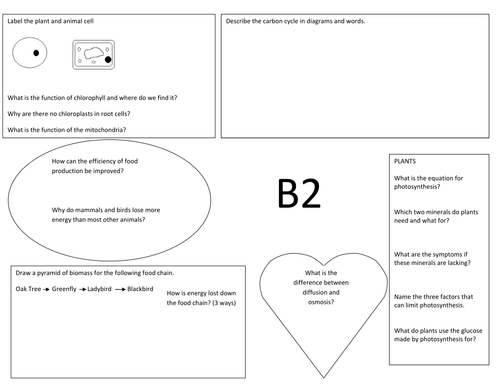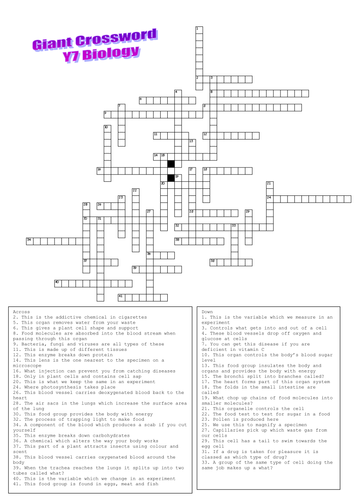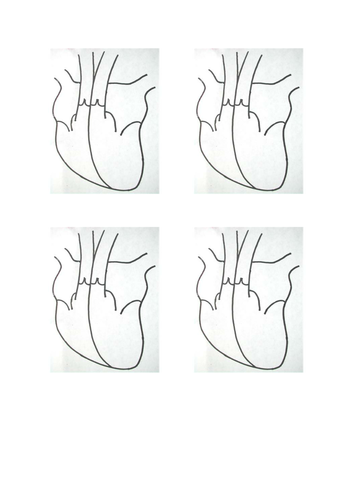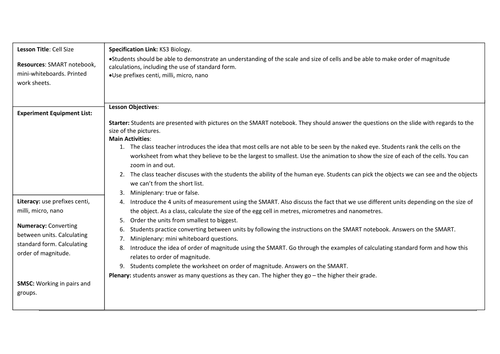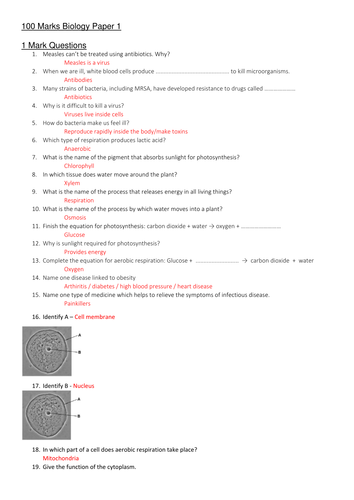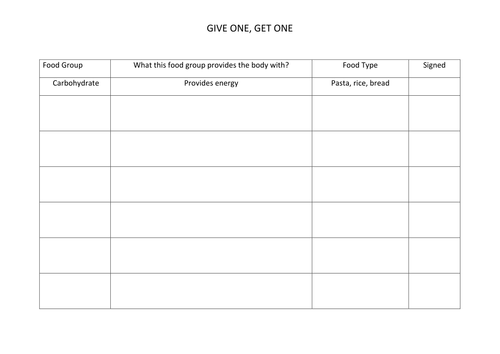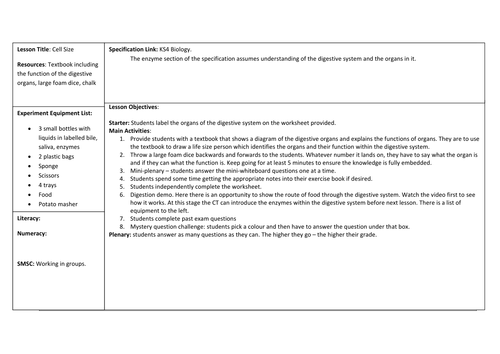
49Uploads
96k+Views
88k+Downloads
Biology

Type of Cloning
Worksheet for students to summarise three types of cloning. They can use the information sheets to produce bullet points.

Reproduction Revision (lower ability)
A revision lesson with a student sheet. Students given a set amount of time to complete the different leveled tasks.

Living Indicators
Lesson powerpoint (notebook) for living indicators of pollution with student sheet. It is pitched at low ability but could be adapted for middle ability classes.

Pollution - give one get one
A different way of collecting notes. Each student is given a sheet with multiple questions on. Each student has an answer to one of the questions. They have to move around the room collecting other answers from other students.

Types of Microorganism
Interactive whiteboard lesson for learning about the three different types of microorganism. including starter and plenary. You will also require information sheets about the three types of microbe for the starter. I used some I found on TES.

B2 Revision
I call these learning mats. A selection of questions and activities to get students to revise the whole topic.

Biology 2 Revision
A revision mat with answers to go along with the new additional specification. Fits well with the AQA specimenn paper.

Adaptations of Animals Starter
Place these images around the room (if you have a large class put 2 sets up) and get students to move around the room writing adaptations of the animals they see on the sheet.

Giant Crossword
This giant crossword can be stuck into the back of pupils books and be used as a settling activity as students filter into the room. It consists of cell and fit and healthy

Heart Anatomy
A lesson which covers the anatomy of the heart and the flow of blood through the different parts of the heart.

Communicable and Non Communicable Diseases
KS3 Health and Disease: This task based resources looks at the difference between a communicable disease and non-communicable disease

Cell Size and Order of Magnitude
AQA GCSE Biology (separates, triology and synergy): This SMART notebook presentation, along with a lesson plan and two worksheets takes you through a few aspects of the specification.
1. The idea that we cant see cells and that different cells are significantly different sizes.
2. The units metre, millimetre, micrometre and nanometre. Students are taught how to convert between units.
3. Why we use order of magnitude and how to calculate it using standard form.

Science Triology AQA: 100 Marks Biology Paper 1
This worksheet provides 100 marks worth of exam questions for the new trilogy GCSE by AQA biology paper 1. There are a mixture of 1, 2, 3 and 4 mark questions. There is also a mark scheme attached.

Food Groups
AQA Science A Biology: This task based resource works through what the 7 food groups are and what the body needs them for. It also looks at what a balanced diet is and how malnutrition can occur.

The Digestive System
AQA Science GCSE (triology, Synergy, Separates): This SMART notebook takes the students through the digestive system to prepare them for learning about enzymes.

